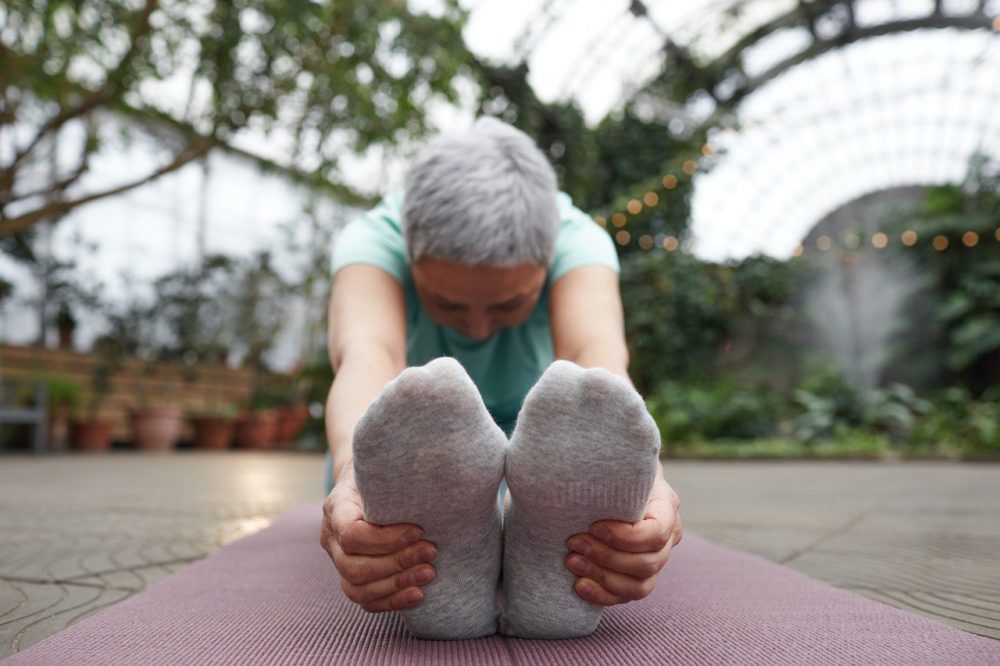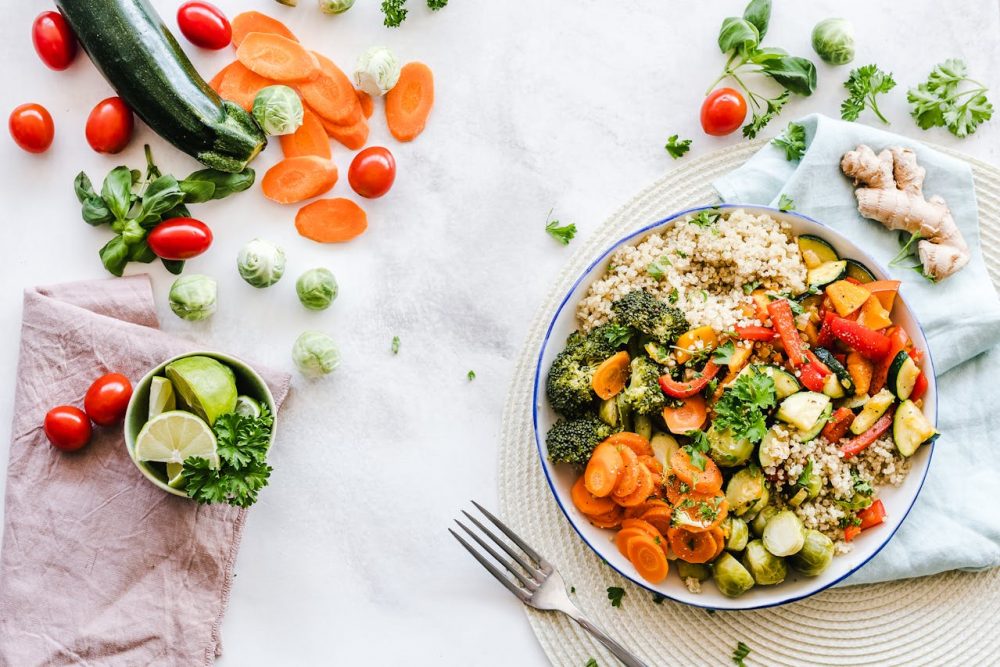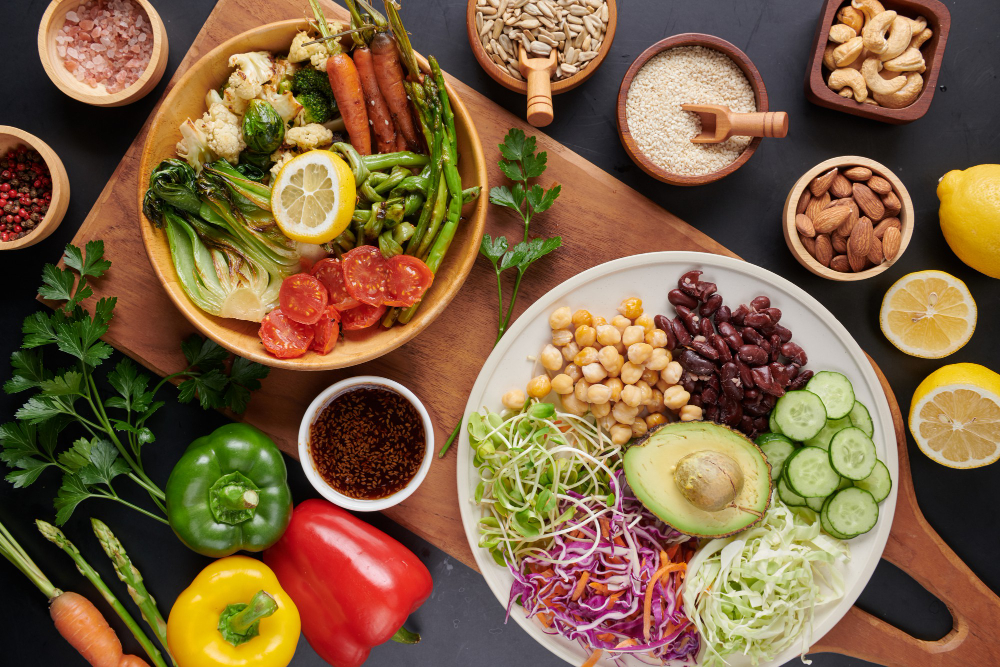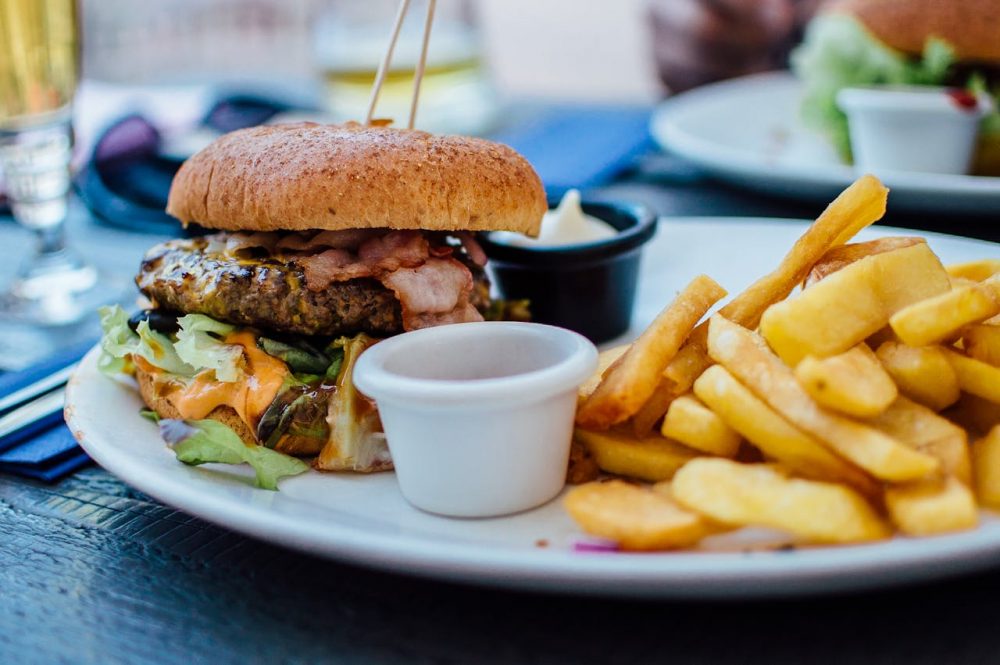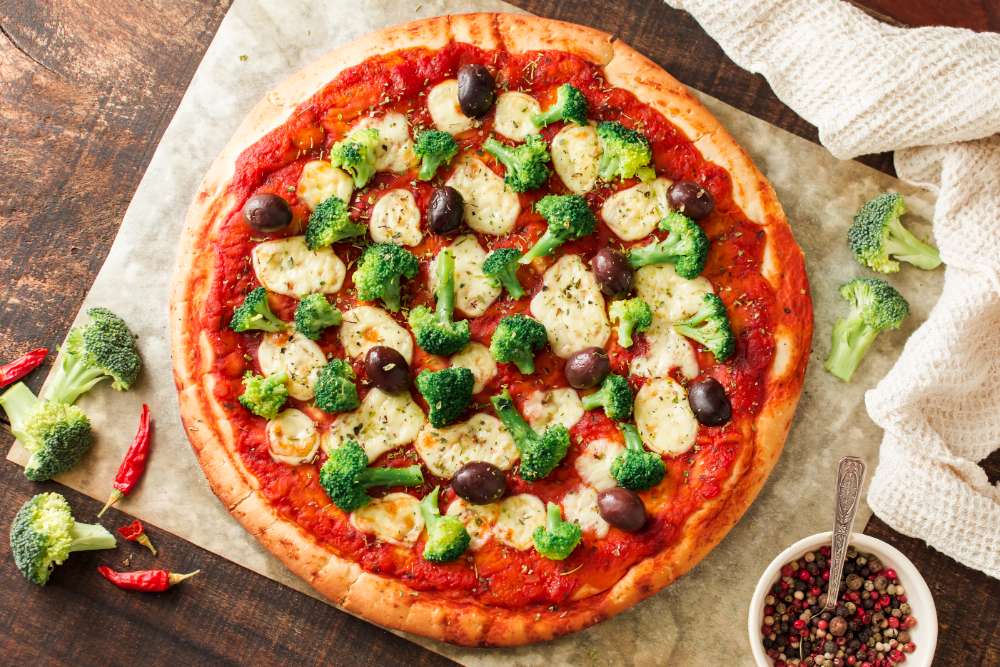Have you ever scratched your head at a restaurant menu, puzzled by various dietary terms like vegan, vegetarian, and ovo-vegetarian? With the rise of dietary awareness, it's crucial to understand these terms to make informed choices at eateries and to appreciate the philosophical and lifestyle distinctions that define them. So, what is the difference between vegan and vegetarian? This article will explore everything you need to know about these two diets.
What Is Veganism?
Veganism goes beyond just a diet; it's a philosophy and a way of life dedicated to avoiding animal exploitation and cruelty. While all vegans follow a strict plant-based diet, avoiding meat, dairy, eggs, and even honey, their commitment doesn't stop there. Strict vegans also steer clear of products like gelatin and additives derived from animals, such as shellac. Even certain wines, processed using animal by-products, are off-limits.

Ella Olsson | Pexels | Vegans follow a strict plant-based diet, avoiding meat, dairy, eggs, and even honey.
The lifestyle of a vegan extends to avoiding animal-derived materials in clothing, cosmetics, and more. They also refrain from participating in activities that might involve animal mistreatment. Therefore, veganism is about making choices that are kind to all living creatures, not just through diet but across all aspects of life.
What Is Vegetarianism?
On the other hand, vegetarianism primarily focuses on diet. Vegetarians avoid all types of meat and, in some cases, fish and seafood. However, their diet might include dairy products and eggs, depending on the kind of vegetarianism they practice—be it ovo-vegetarian (eggs but no dairy), Lacto-vegetarian (dairy but no eggs), or ovo-lacto vegetarian (both eggs and dairy).

Bich Tran | Pexels | Vegetarians do not consume meat but may still consume dairy products, eggs, and other non-meat animal derivatives.
The reasons people choose vegetarianism can vary from health and religious beliefs to ethical concerns about animal welfare. Unlike veganism, which is a total lifestyle choice, vegetarianism mainly addresses dietary habits.
What Is the Difference Between Vegan and Vegetarian?
The main distinction lies in the degree of exclusion of animal products. What is the difference between vegan and vegetarian? Vegans abstain from all animal or animal-derived products, making it the strictest form of vegetarianism. This means no meat, dairy, eggs, honey, or other subtler animal-based ingredients. Vegetarians do not consume meat but may still consume dairy products, eggs, and other non-meat animal derivatives.
Furthermore, vegetarians might use products made from animals, such as leather and wool, which most vegans will avoid due to their lifestyle ethos against animal cruelty.
Is Veganism or Vegetarianism Healthier?
Neither diet is inherently healthier; the key is balance and nutrition. Both diets can provide all necessary nutrients, but vegans must be careful to consume enough protein, calcium, vitamin D, and essential fats. Supplements and fortified foods can help bridge any nutritional gaps.
What Are Vegan and Vegetarian Diets Lacking In?
While vegan diets may lack in calcium, vitamin B12, and certain fats, these nutrients can be obtained through supplements or alternative sources like fortified foods. Vegetarians need to pay attention to their vitamin B12 and iron intake, typically found in meat, though these can also be sourced from plant-based foods or supplements.

Pablo Merchán Montes | Unsplash | Vegan diets may lack calcium, vitamin B12, and certain fats, and vegetarians need to pay attention to their vitamin B12 and iron intake.
Wrapping Up
Understanding these distinctions helps make personal dietary choices and fosters respect and consideration for others' dietary preferences, which is essential in our increasingly diverse and health-conscious world. Whether opting for a meal or discussing dietary choices, knowing the difference between vegan and vegetarian can enhance mutual understanding and respect.

